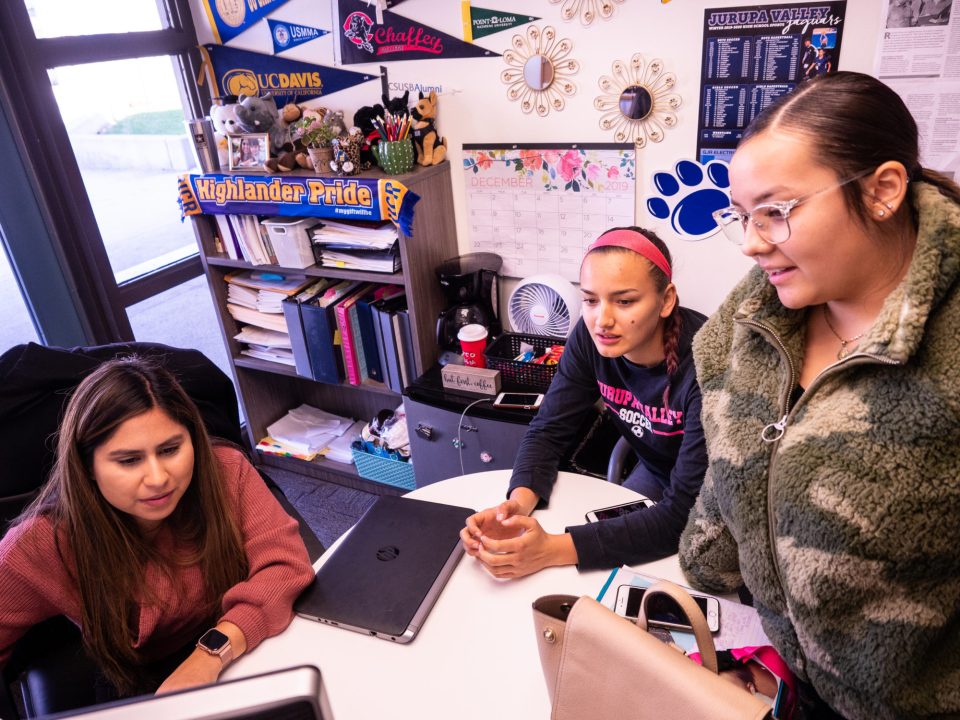
JURUPA VALLEY, Calif. — Felicida Barajas’ office, in one of Jurupa Valley High School’s main thoroughfares, was strangely silent. The only sounds were the clacking of computer keys and the occasional joke to break the tension as 12th graders hunched over laptops trying to finish their essays ahead of the looming deadline for their college applications. Six students perched on chairs crammed into the office, and other students sat on the floor beneath a rainbow of college pennants.

Melissa Torres was among the high school seniors who spent the day camped out with Barajas. The 17-year-old had put off her applications to California’s public universities until the last minute because “it didn’t seem real,” she recalled. But having Barajas sit down with her and explain the process made things easier. “She helped me figure out what to do next, step by step, because it was overwhelming to do it all at once,” said Torres.
Barajas is a new school counselor at Jurupa High. Counselors can make the difference between a student heading to college with a robust financial aid package and a plan of study — or not applying to college at all. For first-generation students and those from low-income families, a counselor might be the only person who can help them sign up for standardized tests, compile a list of prospective colleges, write admissions essays and fill out dizzyingly complicated financial aid forms.
“She helped me figure out what to do next, step by step because it was overwhelming to do it all at once.”
Yet many counselors receive little or no training in college counseling. Although most counselors are required to hold a master’s degree, many graduate programs in counseling don’t offer any classes on college admissions. Instead, training focuses on helping students cope with social and emotional problems.
That in part reflects how counselors’ jobs have changed during the last few decades. As more students show up to class hungry, tired, anxious or depressed, schools have shifted their resources toward helping them cope with these basic needs. Counselors also contend with duties such as test administration and other administrative tasks. Still, the need for help with increasingly complicated college planning has expanded, especially as tuition has soared, raising the stakes for decisions about college and financial aid.
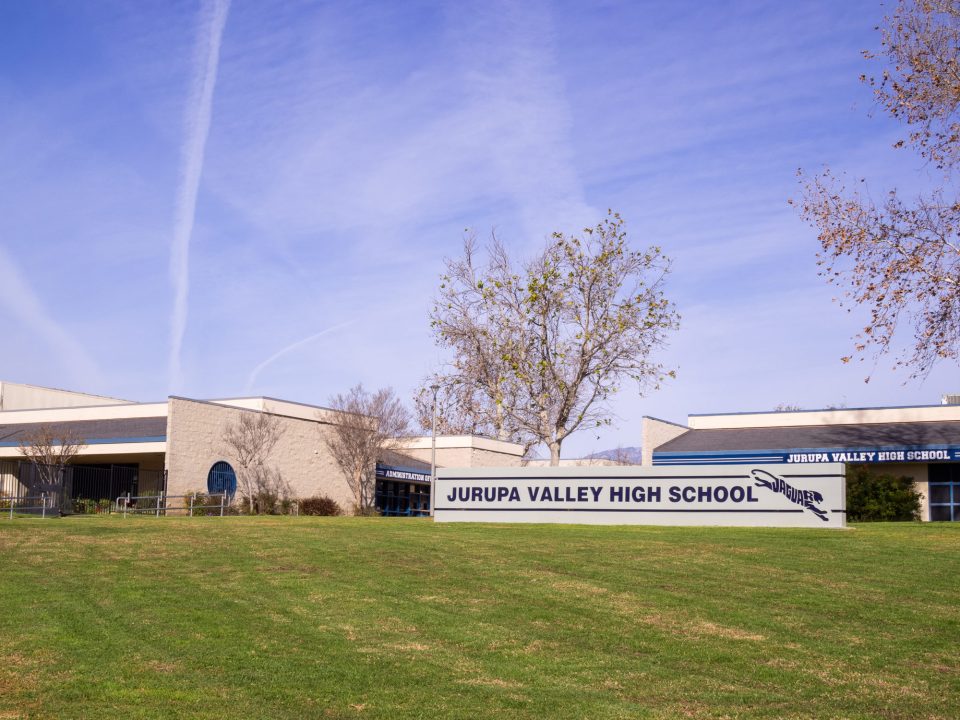
Recognizing that the pendulum has swung far from college and career counseling, a few states, including California, have started requiring more training in these areas. Some counties and school districts are also adding professional development opportunities for counselors, amid a push to boost graduation and college enrollment rates. Barajas benefited from the New School Counselor Academy, run by California’s Riverside County Office of Education, which offers professional development in college counseling and career planning to current and incoming school counselors.
“That totally opened up my entire world because in my graduate school it was more about mental health,” said Barajas, a first-generation college student who recently graduated from a three-year master’s program in school counseling at California State University-San Bernardino. She sought out the New School Counselor Academy while still in graduate school to fill gaps in her knowledge. “I knew that what I learned in my program is going to be so different compared to when I actually got to the field,” she said.
Related: School counselors keep kids on track. Why are they first to be cut?
Experts who’ve studied the issue said the dearth of graduate training in college counseling results from many graduate faculty coming from clinical counseling backgrounds and lacking experience working in schools. High school counselors also study alongside middle school and elementary counselors for whom college and career planning is less of a priority.
Four years ago, the main accreditor of counseling programs added standards related to college and career readiness. But programs have until 2023 to comply and change has been slow.
Laura Owen, a former school counselor who directs American University’s Center for Postsecondary Readiness and Success, said many counseling programs argue that they infuse college and career training throughout the curriculum. “That’s not going to do what we need to have done to really prepare our students,” said Owen. “We need stand-alone coursework that is providing this training.”
“We need standalone coursework that is providing this training.”
Representatives of graduate programs argue that their students gain exposure to college counseling through internships. Many states require a minimum of 600 hours of field experience through internships to earn licensure in school counseling. However, internships vary widely in the hands-on experience they offer. At the same time, school administrators expect counselors to be knowledgeable about college and career counseling, but are often reluctant to allow them time off for professional development, said Owen.
Leslie Nelson, a counselor in her second year at Milwaukie High School, near Portland, Oregon, said she took a single class on college and career readiness in her counseling program at Lewis & Clark College. The course focused on using assessments to help students identify possible careers, she said, but didn’t cover strategies for helping students identify colleges or apply for financial aid. “It didn’t feel like a lot of preparation,” she said.
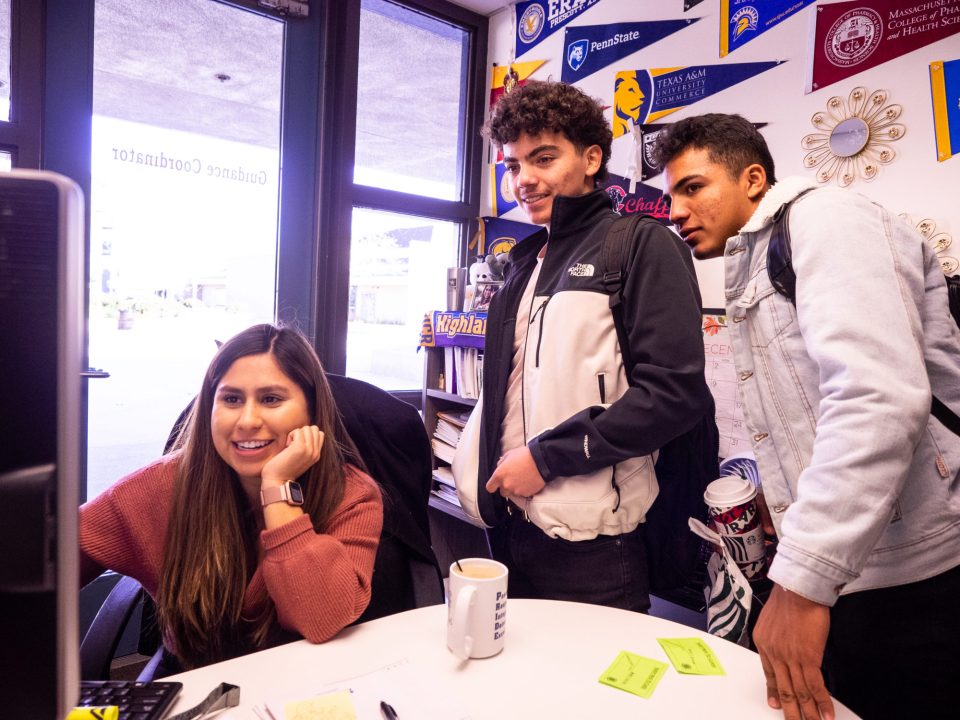
Although she’s learning on the job, she didn’t know where to start when it comes to helping students select colleges that might be a fit. “All colleges have their niches, I just don’t know what those niches are,” she said.
Some jurisdictions are trying to help. On a recent weekday, a dozen school counselors gathered in a meeting room at the Riverside County Office of Education for the New Counselor Academy. Pedro Caro, the county’s college and career readiness coordinator, projected California’s dashboard of school data on a screen and showed the participants how to dig into the numbers for their schools. The dashboard, which presents data on everything from attendance to suspension rates and graduation rates, can help counselors tailor their advising for students, Caro said.
Barajas, the first-year counselor at Jurupa Valley, said the counselor academy gave her the skills to track her students’ academic progress to help ensure they are meeting college admissions requirements. She can step in as soon as she sees that a student is falling behind academically.
“The data may show that students are not feeling motivated because they did not know college was an option for them,” she said. To combat this problem, she’s found ways to raise awareness about college and careers by organizing fairs, application and financial aid workshops and classroom presentations.
“That totally opened up my entire world because in my graduate school it was more about mental health.”
The counselor academy was started under the leadership of Catalina Cifuentes, who worked as a counselor for eight years before becoming executive director of college and career readiness at the Riverside County Office of Education. She founded the academy, together with Caro, after encountering difficulty finding qualified counselors to hire. On one occasion, she said, none of the eight finalists for a high school counseling job could read a high school transcript well enough to assess whether that student was college ready. “That’s how bad it is,” she said. “So then they’re having to play catch up.”
Along with the New School Counselor Academy, Riverside brings together counselors from districts all over Riverside County for daylong training twice a year. This investment in counseling has paid off. Five years ago, Riverside County had one of the lowest graduation rates in California. In 2018 it had the second highest rate among California’s ten largest counties.
Cifuentes has also been involved in rolling out new standards for school counseling programs in California. Under the update, the first in 20 years, the state standards will include specific performance criteria for college and career readiness for the first time. In addition, prospective school counselors now have to spend at least 100 of the 800 hours of required fieldwork on career and college readiness.
Other states are taking similar steps. In Michigan, a 2017 law mandates that school counselors complete 50 hours of training in college and career readiness as part of the 150 hours required to renew their licenses every five years. Two years earlier, Texas passed a bill asking the state’s flagship university, the University of Texas at Austin, to create resources for improving postsecondary success for the state’s high school graduates. One result was the Texas OnCourse Academy, which provides virtual training on college and career advising for counselors and other educators.
Related: Rural students often go unnoticed by colleges. Will virtual counseling put them on the map?
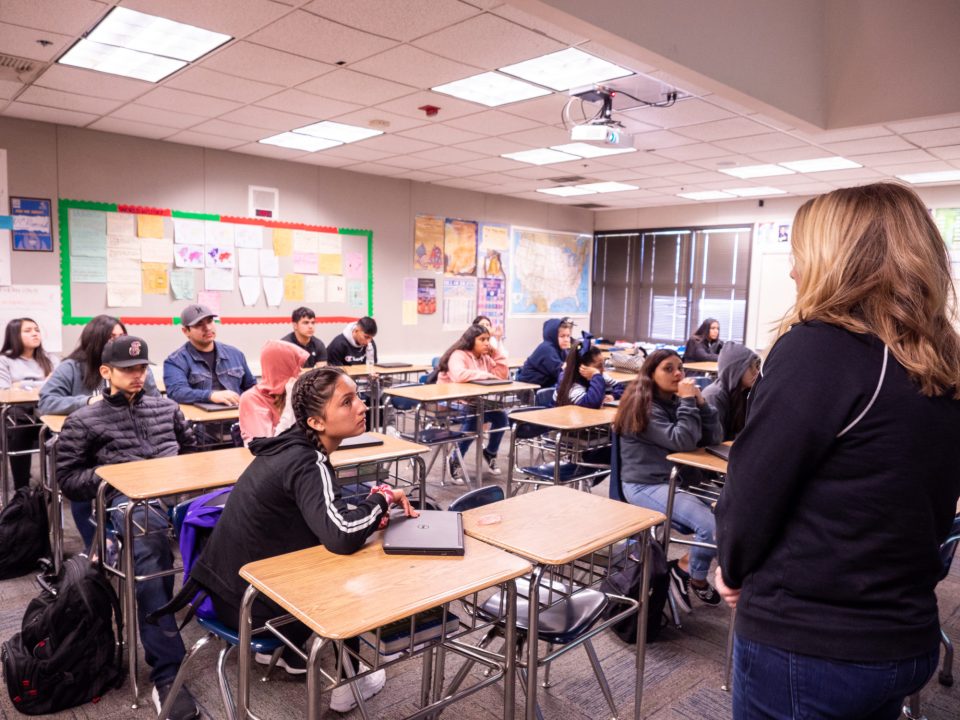
While counseling is a data-heavy profession, for Barajas, it’s also personal. On a recent weekday, she and her colleague Lisa Contreras told ninth-graders about options after high school — from entering the military to community college certificates and graduate programs.
At Jurupa Valley, more than 70 percent of students are eligible for free and reduced-price lunch, a federal measure of poverty, and 62 percent come from households with no college experience. Barajas can identify with many of her students.
“I was raised by a single mom and my mom was low-income and for a time there I really struggled academically,” she told the class of ninth-graders. “I had straight Fs my first year in high school and I knew I wanted to go to college, but I didn’t know how.”
Barajas explained how she started at a community college, and continued on to California State University, San Bernardino, where she also earned her master’s.
At Jurupa Valley, 17-year-old Yaire Romero will be the first in her family to attend college. The aspiring criminal justice major said that most of what she knows about college has come from her counselors and other school resources, such as AVID, a college and career readiness class.
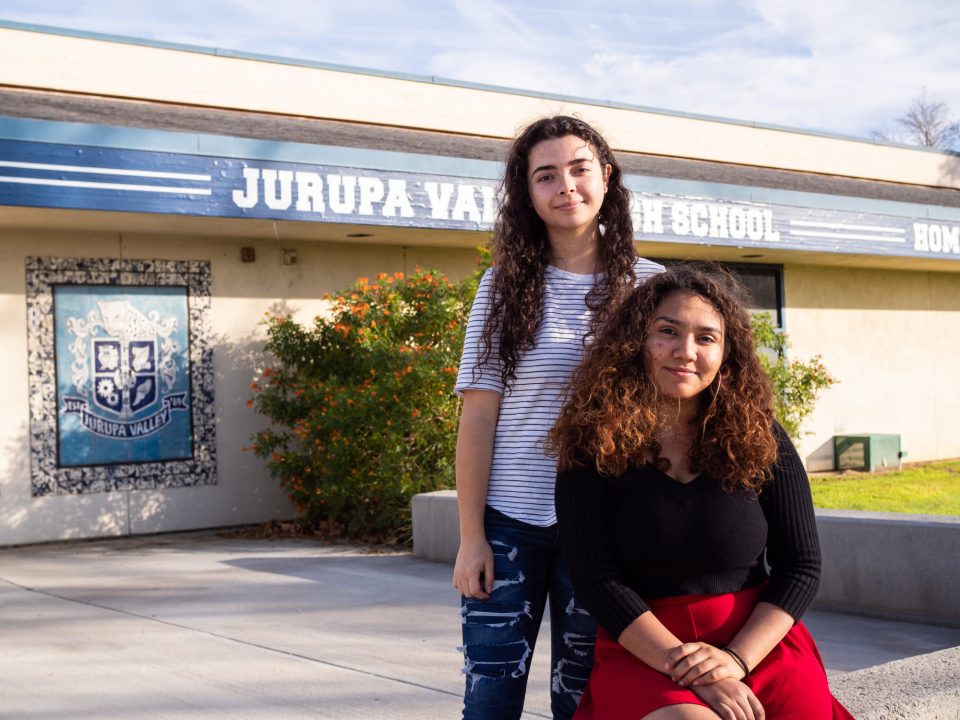
Her parents haven’t been able to attend any college nights because they work a lot, Romero said. She added that they know that she’s applied to college, but she doesn’t think it’s hit them yet that she’ll be leaving in the fall.
Unlike many of her classmates who were camped out with Barajas on deadline day, Romero submitted her applications well in advance. She attributes that foresight to her relationship with the counselors, whom she visits a couple of times a week.
“If I wouldn’t have gotten close with [my counselors], I would’ve been like everybody else who had been all stressed about the whole college application process,” Romero said.
Barajas said she never worried about Romero because of those frequent check-ins. But she is concerned about the students who don’t drop by her office. She has made it her goal to meet with all 415 students in her caseload, starting with the seniors. If they don’t visit her, she will find them.
If she found a way to attend college, so can her students, she tells them. “It’s just opening a new world for my kids to things they didn’t know were possible,” Barajas said.
This story about college counseling was produced by The Hechinger Report, a nonprofit, independent news organization focused on inequality and innovation in education. Sign up for Hechinger’s newsletter.


At The Hechinger Report, we publish thoughtful letters from readers that contribute to the ongoing discussion about the education topics we cover. Please read our guidelines for more information. We will not consider letters that do not contain a full name and valid email address. You may submit news tips or ideas here without a full name, but not letters.
By submitting your name, you grant us permission to publish it with your letter. We will never publish your email address. You must fill out all fields to submit a letter.